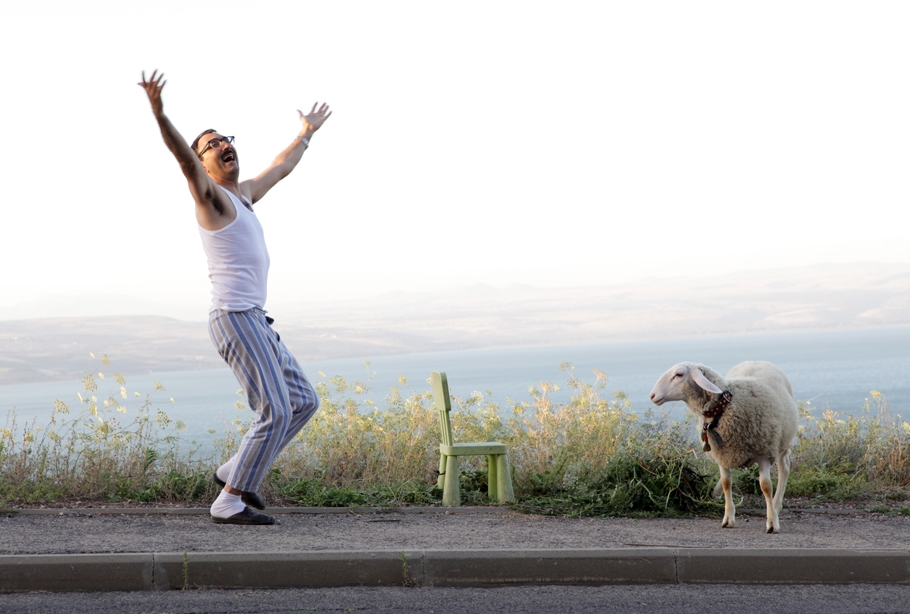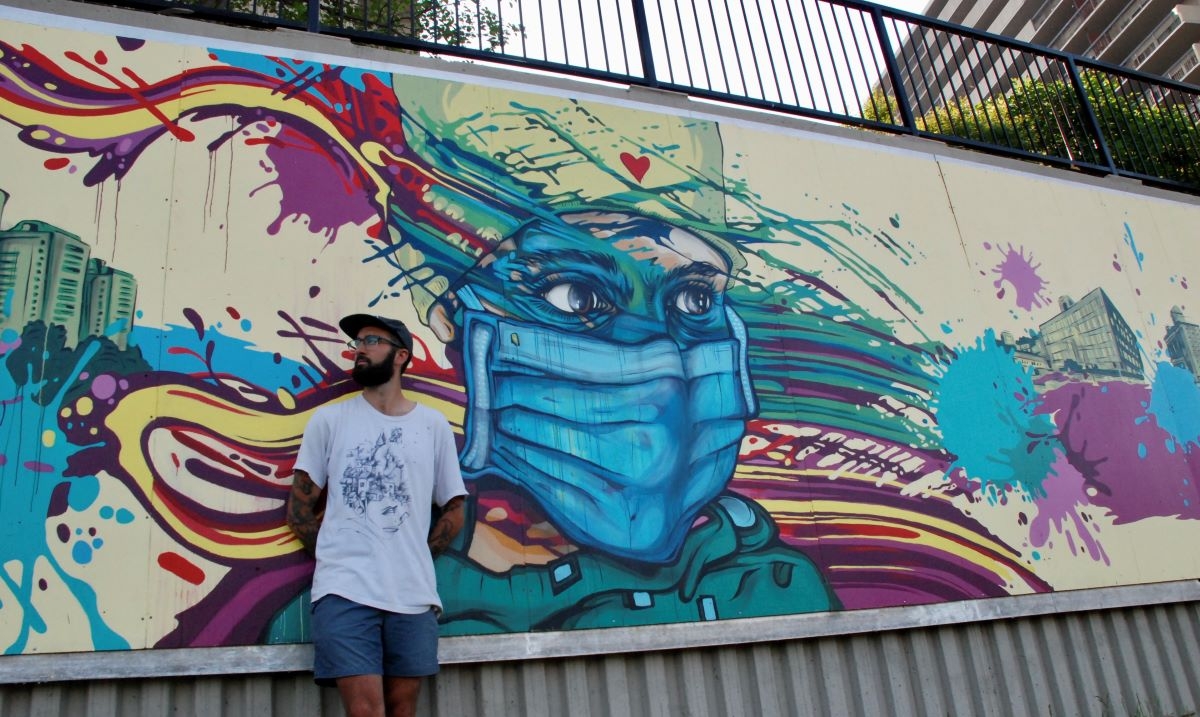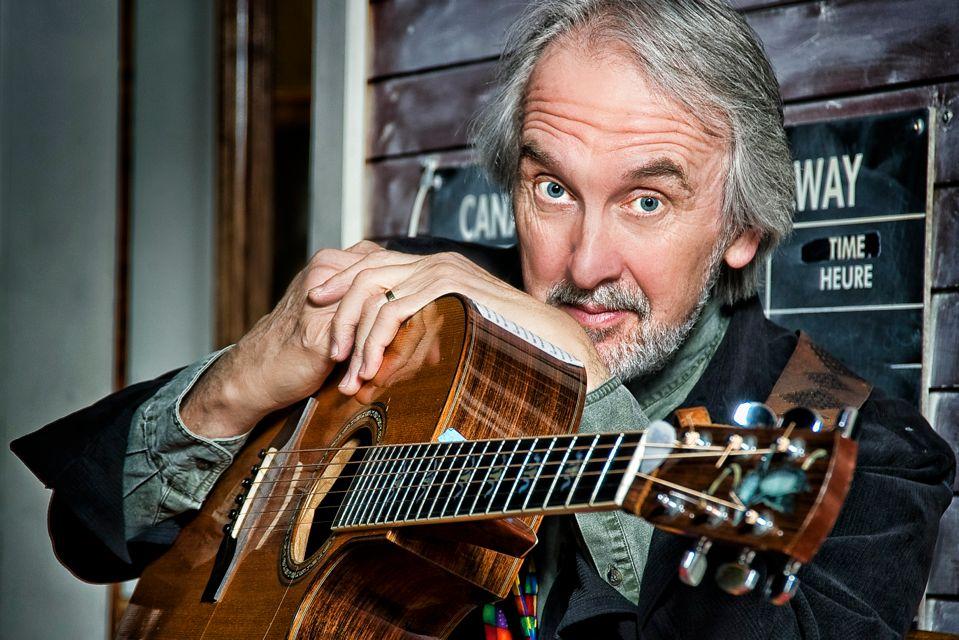
Fred Penner – 45 Years of Songs, Smiles and Sandwiches – The Ottawa Life Interview Part 1
Some people just exude happiness. It radiates off them like the Aurora Borealis and a few moments in their presence has you brightly beaming right back. Children’s entertainer Fred Penner managed to achieve this daily through a television screen and now continues it from the stage to an ever growing audience of wee ones and elated adults.
Though we’d never met him, Fred was no stranger. If you were a kid growing up in the 80s it’s a fair bet you probably could eat your weight in Timbits, knew how to Skidamarink and meowed along at least once with a friendly bearded man playing a guitar. If you were this kid growing up in the 80s, you asked to hear his song “The Cat Came Back” so much that one day the cassette you begged your mother to buy from the gas station mysteriously disappeared from inside the car.
Thankfully, there was still television and, back then anyway, a daily dose of educational life lessons doled out by hosts that were actually human mixed in with the occasional stuffed animal or puppet. Penner, who had released a series of popular albums in the late 70s and early 80s, was asked to develop a replacement series for The Friendly Giant. Not an easy task considering that giant had been on the air since the 50s.
When he was offered the show, Penner, who had actually graduated with a degree in economics and psychology, was still in a state of surprise over the popularity of his music. His biggest hit, after all, was a song about a seemingly indestructible feline penned back in the 1800s.
“Nobody ever told me that was an option. I didn’t really consider that until the early 70s,” Penner tells Ottawa Life before his sold out Saturday show at the Shenkman Arts Centre.
At 70 and on the heels of releasing Hear the Music —his 13th album that includes collaborations with Ron Sexsmith, Bahamas and Basia Bulat– music has been hard not to hear. It's always been a big part of his life. Though it may seem hard to believe to those of us who've always known him as a grown up, he was once a kid singing to his mother on the bus. He started playing guitar early on as well but making an actual career out of singing was a pleasant blindsiding that happened later in life. His first few albums sold well enough to earn him a spot on Sharon, Lois and Bram’s popular Elephant Show and caught the eye of Dodi Robb, head of Kid’s programming at the CBC. Then came one of those life changing phone calls offering Penner a move into television.
“The interesting thing was being given the show,” recalls Penner who recalls how surprising it was that not only was opportunity knocking, he was being asked what he wanted to build behind the door.
“It was put in my lap and I asked how would I do this and they replied with: what would you like to do? It wasn’t this preconceived notion that I was just fitting into. It was completely in my power to direct it any way I wanted which is unheard of.”
Though music was a natural insertion into what would become Fred Penner’s Place, the musician now television personality turned to two unlikely sources when it came to shaping the program. One involved a childhood memory of burying a dead pet chicken in his backyard. Crawling through a thatch of bushes, much like the adult Penner would a hollow log on the show, he remembered feeling like he was in a safer, sheltered place, one that would form the larger wooded grove on the show. He was also greatly inspired by the hippie movement from the 60s, a harmonic unity he wanted to capture with his young audience.
Penner didn’t believe in talking down to a child, shifting phrasing or style. To him, to more you showed respect for children, the more you try to understand the energy they are giving you, the more they relate and respond. It’s a trait that continues today in his live shows that include much audience participation from both kids and the parents who once watched him perform as children themselves.
It’s something that still is astonishing to the entertainer as he watches it happen from the stage. When the internet and 24-hour children’s networks saw the end of his television show after a 900 episode run, Penner was ready to sink into a form of retirement. The wheels would slow to a stop and he’d find other ways to occupy his time. Then those kids grew up, had kids of their own and a whole two, sometimes three generations were now there to perform to. There were those, like me, that remembered that friendly bearded man with the guitar and those, like my nephew and neice, meeting him for the first time.
That demeanor is infectious, an instant joy fueled by nostalgia and genuine kindness, experienced most recently in a rare live performance that didn’t include a single child. Part of a Juno Week mega-event called Playlist Live: Canada’s 150th where The Arkells had just tore the place apart, those still recovering (and tossing back their third drink) may have wondered if they were hallucinating when Fred Penner walked onto the stage as the clock ticked a half hour shy of midnight.
“Look at you all drinking alcohol. I guess I didn’t teach you anything” he playfully admonished. There was that smile we all remembered, there was that friendly twinkle in his eye and with just a few strums on his guitar and a song about a cat, Fred Penner turned us all into kids again showing that even if that cat never came back the audience always would.
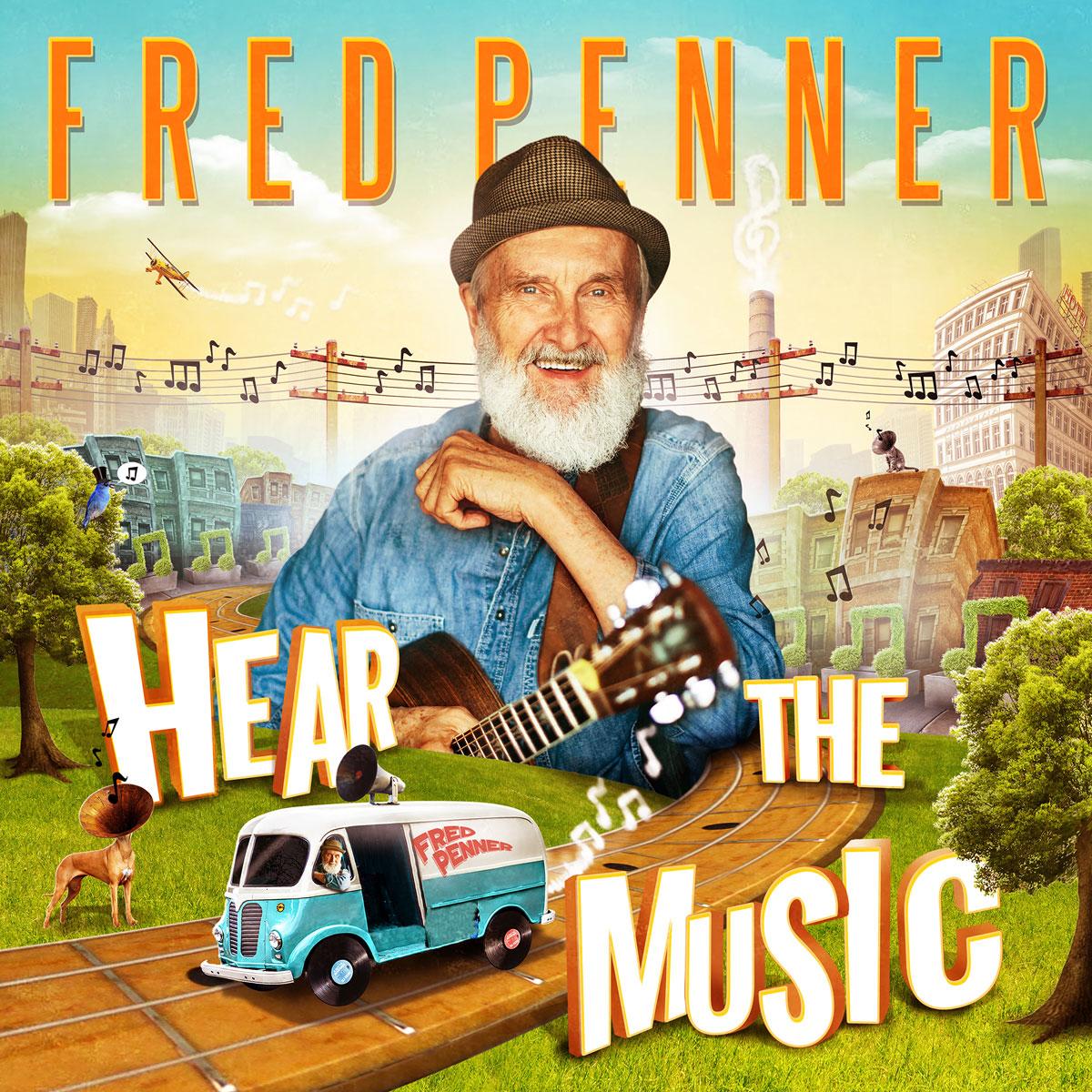
In Part 1 of Ottawa Life’s interview with Penner, we chat more about the early days of his career, working on his television show and his days growing up in Hull.
Ottawa Life: I’m sure I’m now one of the many people who are an adult relaying how much you were a huge influential part of their childhoods. Over two decades of life have passed since watching Fred Penner’s place, singing along to your albums, but a lot of that still sticks. How does it feel when adults tell you this?
Fred Penner: It’s surprising. When I began this career I didn’t know how long it would last or where it would carry me. Now it’s 45 years later and it is still a bit of a blink. It’s really gratifying that people feel that deeply about my life’s work. I love that when people approach me it is always with a smile and a story. There’s openness to communicating with me. I’ve never played the diva. Pretty much what you see is what you get. I like the sense that people feel comfortable enough to approach me and share a feeling with me. I certainly don’t take it for granted.
I imagine it has be a little strange seeing these adults now bringing kids to see you or, in some instances, grandchildren. Did you ever think when you were starting out that you’d have this multi-generational longevity?
It’s going into another zone it seems. A number of years ago, 10 or so, the Fred Penner’s Place series had been off the air since ’97. There were no reruns so there was nothing happening there. People kept saying I wish your show was back on the air. What happened? It was just starting to find it’s lowest common denominator and some kind of balance. I thought that was fine. I mean, I had the grand kids to keep me busy. Life goes by, you know. I’d just slow down, still play guitar once in awhile. I was moving into some level of retirement. Then all of a sudden it turned the corner and that generation started growing up and I started playing the bars and universities from coast to coast. People now saw me in a new light, that I was still relevant to some degree. From my point of view, I was still desirous in wanting to connect to the audience. I found that there was more to be said, more to be communicated and the value of this work was not finished yet.
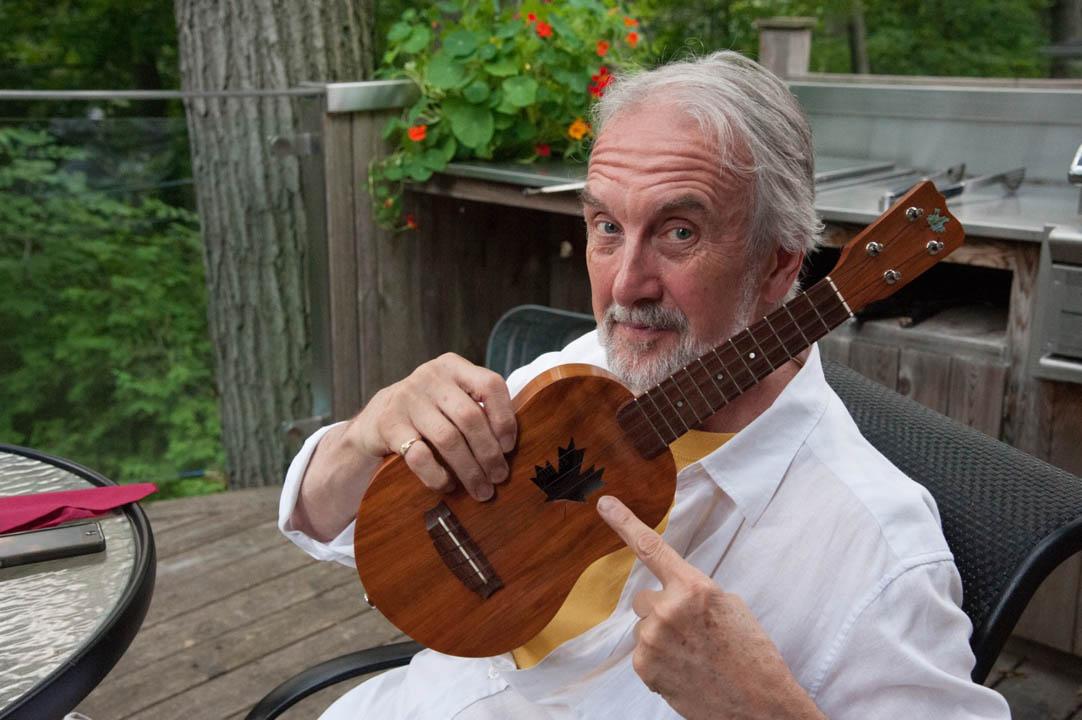
Let’s go back to when you were a kid. You were drawn to music early, singing songs on the bus, learning guitar at a young age. What do you feel drew you to music?
It was just inside of me. My parents were both quite musical. My dad, even though I never saw it, played drums and clarinet in some orchestras in school growing up. He played ukulele. I’m looking at his old turn of the century ukulele right now sitting on the shelf. He loved classical music, opera. My parents listened to the swing era. I was surrounded by a wonderful assortment of musical patterns. My older brother and sister were into the early rock and roll of the 50s. My ability to hear songs and really take them inside of me was very strong. I just held on to that and as life progressed it was clear that I would have music in my life but not necessarily a career. Nobody ever told me that was an option. I didn’t really consider that until the early 70s.
You spent some of your childhood living across the river from Ottawa over in Hull. What are some of your memories from growing up there? I read the hollow log on the show was inspired from your youth in Hull, for example.
I went to Hull Protestant High. I’m not sure if that still exists. My dad was in the army, stationed in Ottawa. I remember our backyard and one of my pet chickens being killed by a neighbour’s cat. Which is kind of ironic now, huh?
In a few ways. I guess that was the one cat you didn’t coming back.
Exactly! The burying of that chicken in the backyard, I was nine or ten years old, underneath these bushes in the corner of our yard, was really the inspiration for Fred Penner’s Place. When I went back to try figure out what that series would be, how I wanted it to be intimate and protected, the log became the entrance to a protected world. Crawling under these bushes to burry my chicken was the path that came back to me when I was asked to do a series.
I learned my basic French from Hull Protestant High. Those school years really affected me. I enjoyed my experience in Hull. I think I could have lasted longer if we weren’t transferred out.
How are some of the ways early on you feel you shaped your stage presence in relating to your young audience that still holds true today?
That’s straight from the 60s, that beautiful post war boomer generation, and the music that we had in the 60s because so much of it was politically related to what was happening in the world. Activism was high. Singing songs about the challenges that were happening, we had a sense of togetherness back then. Singing folk songs together was just a part of the whole scene. The coffee houses that were brewing across the country were all about coming together and singing these anthems that Dylan, Lightfoot and Joni were singing. So, you really felt that you were connected to the music.
I loved to participate. As my career grew, I just carried that energy of participation as part of my world. I don’t put my head down and jam for a couple of hours. It’s all about these people who have traveled a distance, parked their cars and paid money to come into this place to share something. What is that something? That’s where I bring my theatrical background. I did a wide range of theatre and performance in the 70s, from serious dramatic rolls in Death of a Salesman or musical comedy. So acting, being able to present yourself in a positive way to an audience, carries them through a process, and you feel you have shared something of value by the time the performance is over.
As a former child worker, I always found it amazing what kids deviated to in the form of their arts. Do you still feel music captures kids these days the same way it did when you first started out?
I do believe it does. It’s certainly changed perspective because there’s so much music out there. I find often parents will bring the music they grew up with into their homes. It really is a delight to find how many children are still growing up with The Beatles after all this time. The participation in my concerts now and always is high. I take no prisoners. When I’m out there I say here’s your part, what I want you to sing, do this, show me that. It’s all about playing with the audience. Not just the music. It’s visual as well. I’m always bringing the audience back to the stage and maintaining that connection and they respond.
What I hope has endured is the messages that I am trying to bring out in a none dedicate way: the value of communication, the importance of family, understanding yourself, being proud of who you are, being a stronger person as you go through life, find the things that have value to you and hold onto them. So, my message has never changed as I’ve gone through this journey. I still see in the live performance that it is being related to.
Part of me thinks, too, that the social media world and the computer generation, the insanity of all that, it has a place but it isn’t a replacement for reality, for human communication. In the back of my mind I think what I am doing is opening up a new channel to the kids and it’s creating a sort of balance to the technology.
It’s interesting that you mention that because I know growing up I had people like yourself, Mr. Dressup, The Friendly Giant…I could go on…I still hold these actual people in my mind, all these great educational figures on television. It seems to me that these people have vanished in a lot of ways replaced by Youtube, animation and 24 hour cartoon networks.
Yeah, that was the reason for the demise of Fred Penner’s Place. I had a beautiful run of more than 900 shows, almost 13 years, and I think what happened is that on CBC there is always a new energy coming in, a new person taking up the helm. Each person wants to make their mark. The person who came in in the late 90s was looking at the computer generated work and I was certainly not part of that world and I was not so gently squeezed out. I think that’s backfiring a little bit now. Your generation is wanting the tactile, the reality, a human connection. I’m not sure if it’s linked with books at all or analogue information, wanting to have an actual book in front of you and not an e-book on the screen. I think that’s all part of the same ball of wax.
Do you ever think it could shift back? You know, to more human connection. I look at the contrast, say, between Mr. Rogers Neighbourhood to the now offshoot animated show Daniel Tiger's Neighbourhood.
I don’t think it’s going to go back completely. There may be some shows that pop up and realize there is a value in that. It’s going to be an interesting thing to watch along the way. All that I see from a live performance point of few, playing festivals from Bella Coola to Mary’s Town, Newfound, and there are literally thousands of festivals in this country that are drawing in such an amazing group of talented people. The audiences are there that want to experience live performance. They are not content in sitting at home and turning on boxes.
Continuing tomorrow, Fred chats with Ottawa Life about the importance of maintaining your inner child, how he really feels about that cat and even a little bit of politics.


